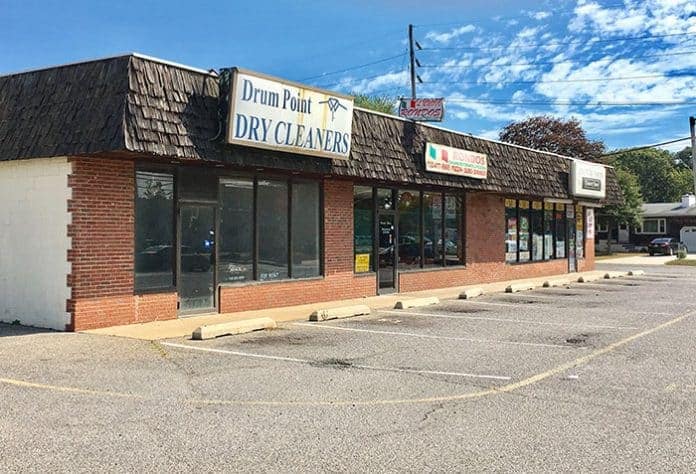
BRICK – The site of a former dry cleaner has become the focus of an environmental investigation by New Jersey Department of Environmental Protection (NJDEP) after a 2010 investigation found that contaminated groundwater had migrated from the site.
Drum Point Cleaners was in operation from 1987 to 2008. Before it closed, the operator was dumping chemicals in the rear of the property, which include tetrachloroethene, trichloroethene, vinyl chloride, 1,1,2,2-tetrachloroethane and 1,1,2-trichloroethane, according to the DEP.
Investigation activities by the DEP are ongoing to identify the extent of the contamination.
Cumberland Farms, Inc. owns and manages the Country Farms Plaza, located at the intersection of Drum Point Road and Adamston Road.
As the property owners, Cumberland Farms is taking actions in accordance with requirements of the NJDEP to address the impacts, and the company is in the process of installing a remediation system, said a company spokesperson.
“The owners of the building came in to apply for a temporary fence permit and met with land use regarding their plans for the site specific to addressing the contamination,” wrote Township Business Administrator Joanne Bergin in an email.
They planned to install a safety fence around the perimeter of the work area and implement a cleanup system where air is pumped into the water, creating bubbles that pick up the contaminants and safely release them into the atmosphere, she explained.
This is an approved technique that is very common in gas station/dry cleaner contamination, Bergin said.
According to the Cumberland Farms spokesperson, granular activated carbon is usually used to clean the air, which is then disposed of offsite in accordance to local, state and federal regulations.
Installation of the system, plus its operation and maintenance, will be performed by environmental remediation contractor Jaime Wuelfing. The cleanup is expected to continue until 2022.
The process would be overseen and approved by NJDEP, the supervisory agency for contamination. The owner’s remediation contractor has been prepping the site and the DEP is onboard with their plans and has assigned a caseworker, who is onsite, for the remediation, Bergin said.
According to the DEP, an estimated 75 percent of state dry cleaners have discharged contaminants into the environment. The contamination is predominantly the result of past operations since the dry cleaning industry has vastly improved its equipment and practices over the last 10 to 20 years.
Exposure to the chemicals dumped by Drum Point Cleaners increases the risk of kidney and liver problems and various types of cancer, according to the DEP website.
Tetrachloroethene does not readily degrade in the environment, impacting groundwater and creating chemical vapors that affect the air quality, posing “an unacceptable risk to human health,” according to the DEP.
The historical practices by the dry cleaning industry have allowed for the discharge of this chemical into the environment, they said. A small and simple remediation of contamination from a dry cleaner operation can cost as much as $100,000.
A convenience store and a pizzeria located at the Country Farms Plaza would remain open during the environmental remediation, officials said.






